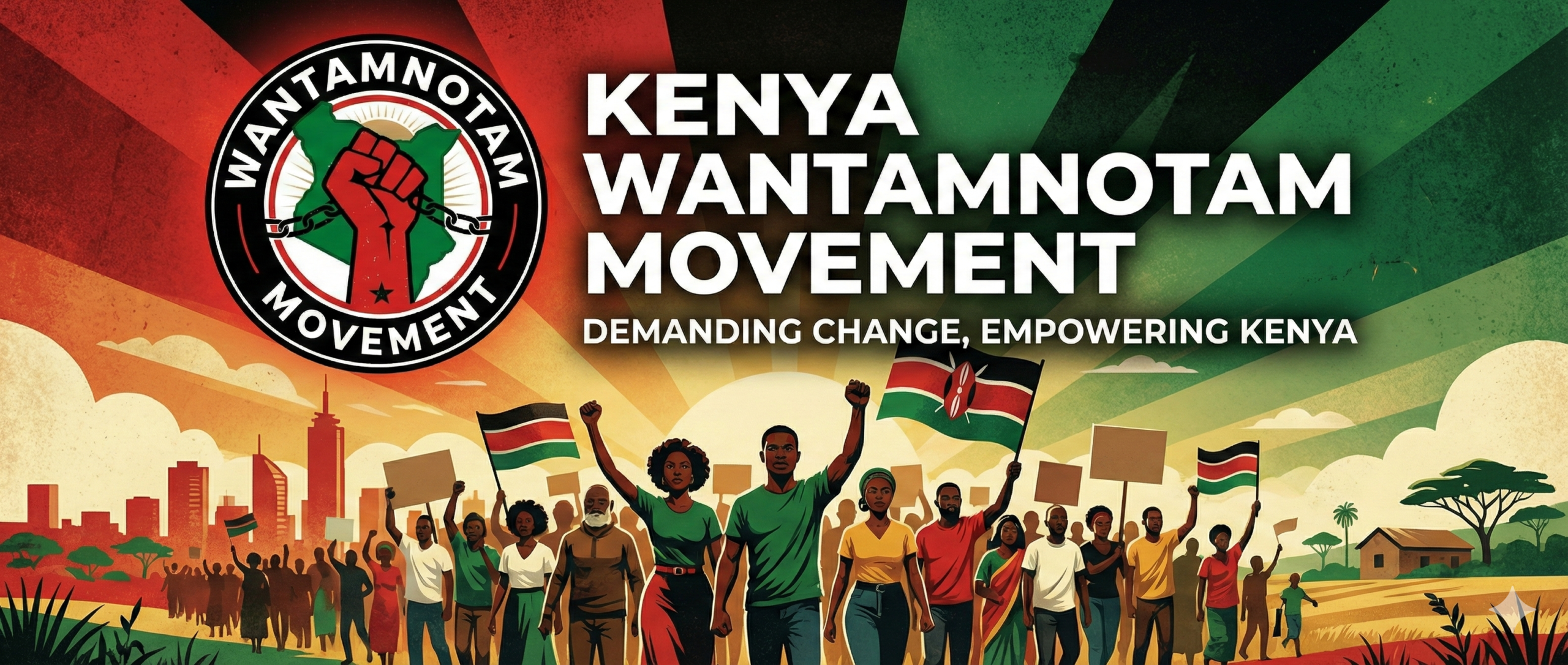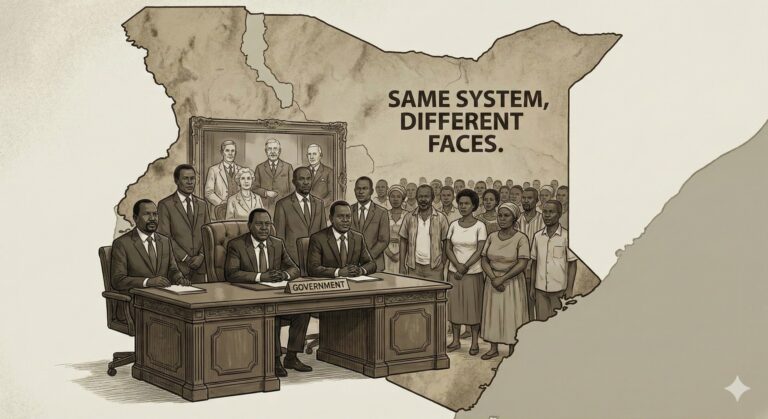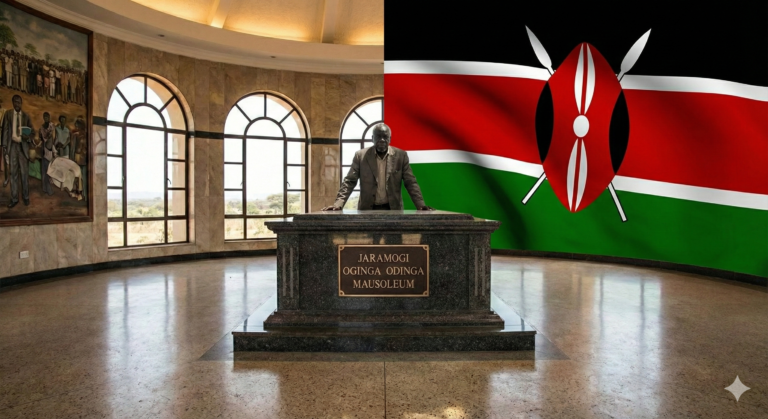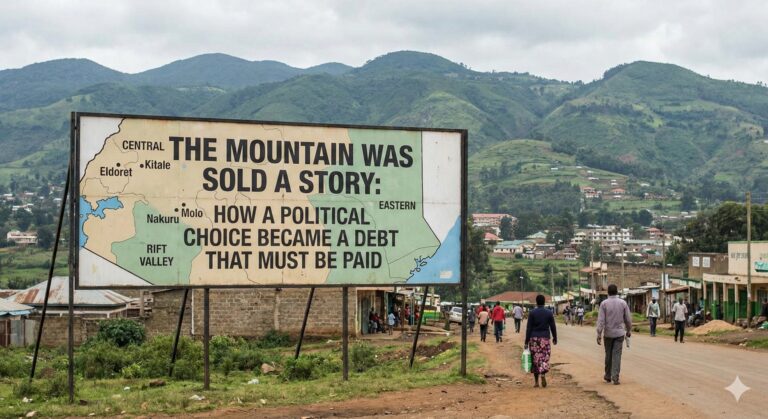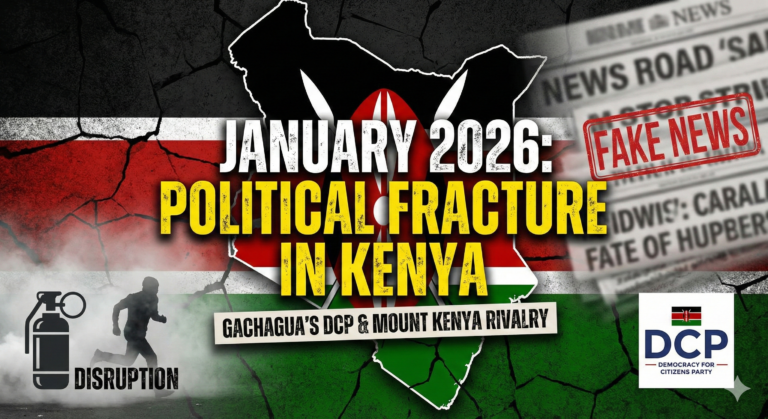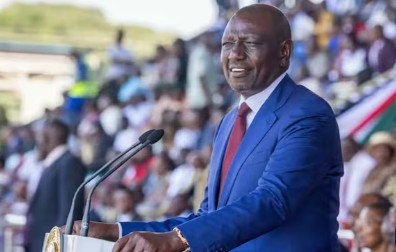
Ruto’s Kenya: A Betrayal of Hope and Unity
On the blistering day I watched President Ruto speak in Kisumu, I could feel the weight of his words. The crowd stood still, captivated by the man who claimed to represent the poor, the hustlers, and the forgotten. His promises rang clear, offering fairness and justice for the grassroots, vowing to cut the hands that steal from the people. In that moment, a spark of hope ignited. Could change finally be possible?
But hope is fragile, and in the shadow of speeches, an empire was quietly built on corruption. Projects were awarded without proper review. The Sh129 billion “tree-planting” initiative, marketed as an environmental renewal program, turned out to be a cover-up for the largest heist of public funds. Justin Muturi, once a close ally, exposed how the project bypassed legal processes. This wasn’t an oversight—this was a calculated scheme to funnel money into private pockets.
Power Grab Dressed As Progress
In 2024, protests erupted nationwide over the Finance Bill. Kenyans, particularly the youth, were vocal. They had had enough of promises that never materialized. But instead of listening to the people, Ruto reshuffled his cabinet, not to heal wounds, but to solidify his control. The so-called “new blood” in government were nothing more than recycled figures from the old guard, loyalists rather than reformers.
Opposition leaders were lured into government with the promise of shared governance, only to become muted voices in a system where criticism was silenced. The Finance Bill passed amid cries of injustice, and there was no apology, only silence. Ruto’s Kenya is not a country of progress—it’s a country where power is consolidated under the guise of reform.
Ethnic Favoritism Torching National Unity
Kenya has long struggled with tribalism, but under Ruto, that struggle morphed into a full-blown betrayal. His administration has embraced ethnic favoritism, appointing allies from specific communities to key positions while ignoring the rest of the country. Ministries and parastatals became rewards for political loyalty, rather than positions for competent leaders.
The result? Entire regions are left behind. Promises of roads, schools, and hospitals are never kept. The message is clear: support the regime, or you get nothing. This divisive approach deepens the tribal divides that have plagued the nation for decades.
When Cabinet Became Cash Cows
Scandal has become the norm under Ruto’s leadership, not the exception. His administration didn’t just allow corruption—it normalized it. Ministers living far beyond their means, state contracts ballooning in price, ghost projects, and ghost suppliers—billions were siphoned off, and the people paid the price.
The ghosts of the Arror and Kimwarer dams are still haunting us, with billions meant for development vanishing without a trace. Weston Hotel sits on public land, the Ngong Forest grab still hangs over us like a dark cloud. And yet, no top official has been held accountable. In Ruto’s cabinet, corruption isn’t punished—it’s protected.
Young Voices, Silenced by Fear
The events of June 25, 2024, should have marked a turning point for the nation. What began as peaceful demonstrations over unfair taxation ended in a bloodbath. More than twenty protesters, most under 30, were killed by the state. The government’s response? Plainclothes officers firing live rounds at unarmed civilians, dragging activists from their homes, and silencing the voices of dissent.
The crackdown didn’t stop there. Fear spread like wildfire. Youth organizers were threatened, some went into hiding, and others simply vanished. The state didn’t acknowledge its wrongdoing; instead, it dismissed the protests as “sponsored chaos” and blamed foreign influence. The real fear wasn’t in the streets—it was in the halls of power. A regime afraid of the people, and especially the youth, who had begun to demand real change.
It’s Not Too Late—Our Power, Our Choice
This isn’t the first time we’ve been lied to, nor will it be the last—unless we take action. The names change, the slogans shift, but the game remains the same. Politicians promise revolution but deliver stagnation. They come to power poor and leave it rich, crying with the common man while dining with billionaires. It’s a cycle that has gone on long enough.
Voting is just one part of the equation. We must also organize, scrutinize, and hold our leaders accountable. County governments, MPs, senators—every level of leadership must be watched. The presidency is not the only place where corruption breeds. Every stolen shilling at the local level impacts a child’s future. Every fake tender builds a politician’s mansion. We can no longer be passive.
Call to Action: Join the Conversation
Silence allowed this corruption to grow unchecked. It’s time to make noise. Speak up. Ask questions. Challenge your leaders. Attend ward barazas. Demand transparency in budgeting. Expose shady deals. Talk to your neighbors, your coworkers, your community. Share your story. Hear others out. Join online forums like www.wantamnotam.com, and amplify the truth.
Democracy dies in whispers, but it thrives in conversation. This is your country. Your taxes. Your future. Don’t wait for someone else to save it. Start the conversation. Light the fire. If we speak now, we can stop the next lie before it takes root. If we speak now, we can end this era of betrayal. If we speak now, we win.
CLICK HERE:Listen To WANTAMNOTAM PODCAST AND TAKE ACTION
